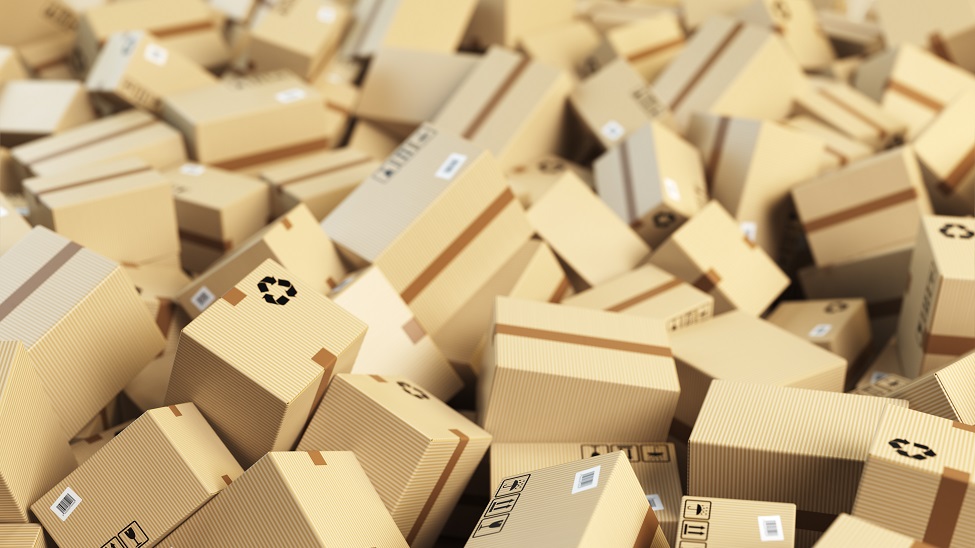
UPS: Understanding consumers’ priorities and their expectations of online shopping is a vital part of our mission

79% of UK consumers say the reliability of a retailer’s delivery partner is important, according to the UPS Smart E-commerce Report 2021, which has been developed in partnership with YouGov.
The study, which surveyed 10,000 consumers across Europe including 2,000 UK consumers, shows the impact that the recent pandemic will have on consumer demand in the long-term.
With a larger pool of potential customers, companies must consider the strength of their e-commerce and delivery offering – how to ensure it’s optimised for customer demand and that the experience meets expectations of convenience.
Arthur Lam, Marketing Director at UPS UK, says: “The pandemic has accelerated digital shopping trends in an unprecedented manner. As the market becomes more competitive for e-commerce businesses, differentiation, through personalized customer services will become even more essential for those looking to stand out. Understanding consumers’ priorities and their expectations of online shopping is a vital part of our mission to deliver what matters to retailers and consumers alike.”
Key themes from the report include:
- Online spending is here to stay
The findings show a rise of 50% in consumers who say they will do ‘all’ or ‘most’ of their shopping online once lockdown restrictions are eased (rising from 10% to 15%). At the same time, 40% say they intend to shop ‘all’ or ‘mostly’ in-store once restrictions are lifted, a drop of 26% compared to pre-pandemic.
- Online versus in-store preference drivers
Enjoyment of shopping in-store (41%) and a more personal experience (38%) are still driving customers to shop in person, while convenience (48%) and cheaper prices (38%) are the key drivers to shopping online.
- Large retailers v independent stores – current preferences
Large retailers are preferred over smaller, independent retailers and online marketplaces by the majority of consumers across all product categories. However, 50% of consumers said they “want to help small businesses”. When shopping with those smaller, independent retailers, groceries (25%) and clothes/footwear (24%) were the most popular choice of goods.
- Factors beyond the purchase journey
A retailer’s choice of delivery partner is the top decision factor for 85% of consumers, with 41% saying this will be a key driver in future purchases. Sustainability is the next most important driver, for 75% of respondents.
- A closer look at sustainability
Consumers want to see retailers use sustainable packaging, with 54% expecting this of large brands and 50% expecting this from smaller brands. The demand for sustainable packaging is highest in Spain (64%) and the UK (63%), with 48% overall wanting to see large retailers reducing their carbon footprint.
- Consumer attitudes to social media
More than half of the respondents (60%) feel brands have overcommunicated during the pandemic, with 57% of consumers believing smaller, independent brands have done a better job when it comes to their social media communications. Consumers that intend to purchase via social e-commerce channels could see a rise of 15% in 2021.
- Generations attitudes to online shopping
Unsurprisingly, those aged 25 to 34, who are often seen as the first generation of ‘digital natives’, are more likely to continue shopping ‘all or mostly’ online once restrictions lift (22%) than those aged over 55 (10%). The over 55s (56%) are also far more likely to buy clothes and/or footwear in-store, than the 18-24 group (34%). Consumers aged over 55 were also more likely to expect free returns when purchasing from larger retailers (62%), compared with 54% of 18 – 24-year olds. This expectation dropped to 36% and 39% (respectively) for independent and local businesses.
- External factors set to impact e-commerce in 2021
When asked about Brexit, 66% of UK consumers surveyed believe products and goods bought from the EU would become more expensive, with 64% believing they will take longer to arrive due to new customs requirements. Meanwhile, 72% of consumers from the EU countries surveyed said buying from the UK would become more expensive, with 69% believing shipping goods from the UK would take longer. Across Europe, 57% of consumers believe they will reduce their overall spending in 2021, in response to the impact of the pandemic.
The study, conducted by YouGov in January this year, captured the behaviours, attitudes and expectations of European online shoppers in 2021, after surveying 10,000 consumers across the UK, France, Germany, Italy, Spain, Netherlands, Belgium, and Poland.










